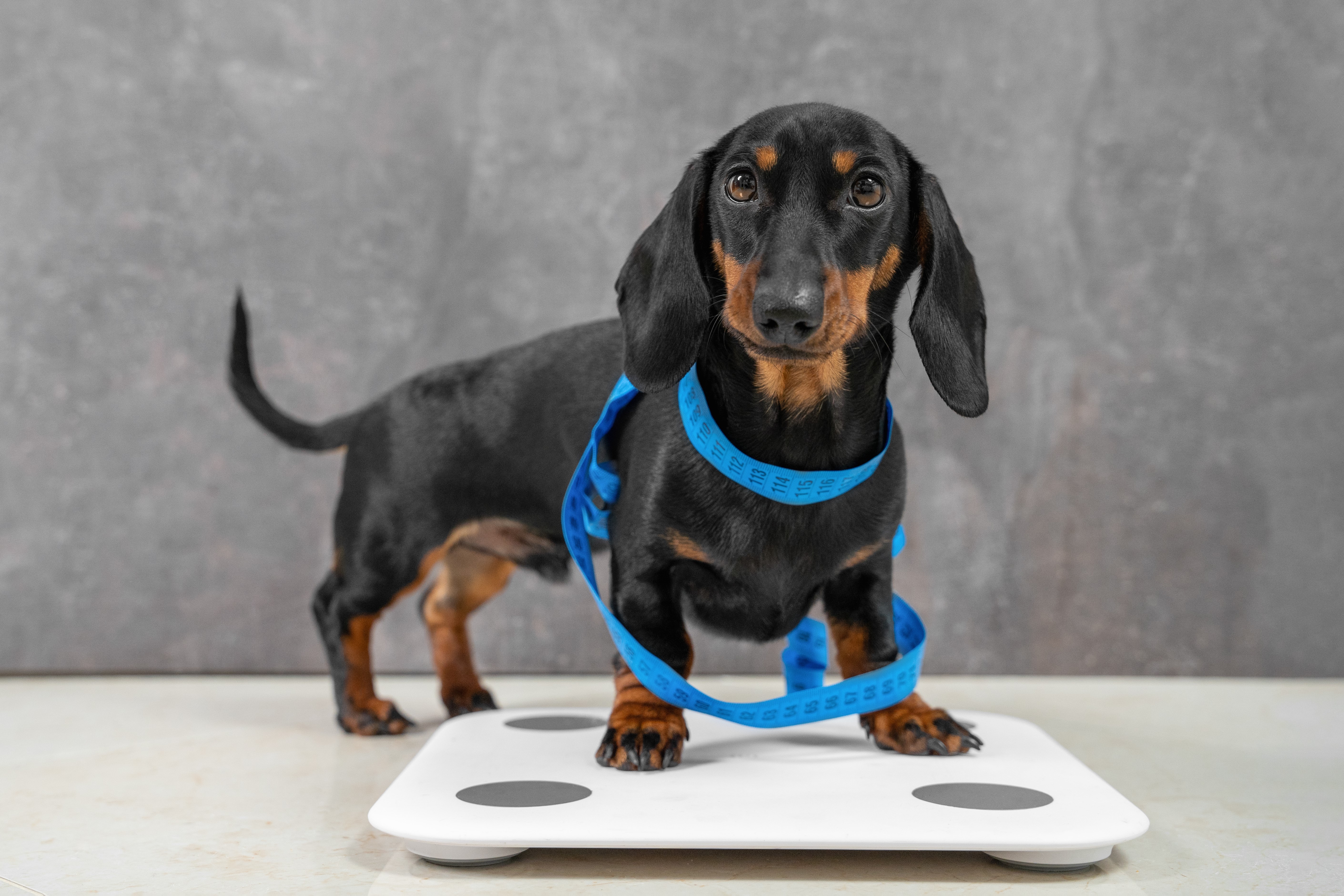
Is my pet overweight?
24th February, 2023
It is becoming more and more common for our pets to become overweight or obese. You may not worry if your pet is a little round, but being even slightly overweight can affect their health, negatively impacting their quality of life and even shortening their lifespan
A cat is considered overweight if it weighs over 20% more than its ideal body weight. If it weighs more than 20% above its ideal weight, they are classified as obese. Being overweight is typically defined as when a dog weighs 10-20% more than their ideal body weight. It is termed obesity if a dog weighs over 20% more than their ideal body weight.
Causes of obesity in cats
Cats that are less active are at greater risk of developing obesity. Inactivity can in turn be caused by, for example, castration, pain from joints or lack of stimulation. Low levels of activity require much less energy (food). A cat will become overweight if they consume more energy than they use.
Unless your cat is a grazer that self-regulates their food intake, cats that have free access to food will have a significantly increased risk of becoming overweight. Some medications can also increase the cat's appetite; therefore, these cats need very careful dietary management.
Consequences of obesity in cats
Obesity can increase the risk of a cat developing other diseases such as diabetes, urinary tract problems, osteoarthritis, skin diseases and fatty liver disease. Overweight cats are also more at risk of inactivity, having a weaker immune system and difficulty feeding their kittens normally. Cats that have a poor diet can also develop significant dental problems.
Causes of obesity in dogs
Some breeds become overweight more easily than others. However, all dogs can become overweight if they are given too much food in relation to their energy consumption. If a dog gets a lot of leftover food or treats with a high fat content in addition to their usual food, the risk of obesity increases.
As dogs age they need less calories and will gain weight more easily, similarly to dogs who have been neutered.
Dogs with painful conditions, such as osteoarthritis, or older dogs, may struggle with daily exercise, and are therefore at increased risk of weight gain. Neutered dogs are at higher risk of becoming overweight as their metabolism decreases in connection with castration.
Obesity can also be caused by hormonal diseases such as hypothyroidism, or overproduction of cortisol (Cushing's disease). Some medicines can also cause an increased appetite, so a carefully measured daily food ration is essential for these dogs.
Consequences of obesity in dogs
Fat (adipose) tissue is a large hormonal organ that produces several different hormones that cause chronic, low-grade inflammation throughout the body. Obesity can therefore lead to several different disease states such as osteoarthritis, diabetes, a weakened immune system, pancreatitis, and high blood pressure, to name a few.
In addition, the risks of anesthesia in obese animals are increased compared to healthy-weight animals. Obese female dogs post-whelping can find it more difficult to feed their puppies. Overweight animals also do not tolerate exercise and heat as well as healthy-weight animals.
Here are our top tips for achieving your pets weight loss goals; everyone in the household must be involved!
- Who: choose one person in the household to set the quantity of food and feeding routine.
- What and when: look at what you feed, how much you feed, how you feed, how and how often and when you feed. Considering all elements of feeding will give you more weight management options
- Weigh out the daily food allowance using scales. All training treats must come from this bowl, rather than being an addition to it
- Measure and record your dog’s weight weekly in a way the whole family can see.
- Reminders placed around the house will tell the whole family that your pet is on a diet
- Remove temptation and hide away all the treats
- Discourage friends, colleagues, and others from feeding your pet treats
- Scatter feed, to slow down your pets eating and reduce the pleading eyes for more
- Indoor and outdoor exercises will encourage further weight loss as well as improve muscular strength
- Remember that weight loss is more effective with dietary change than increased exercise
However, if your dog happens to rapidly start losing weight, it may not be a good sign so it is important to always take them to see a vet.
Sources: FirstVet